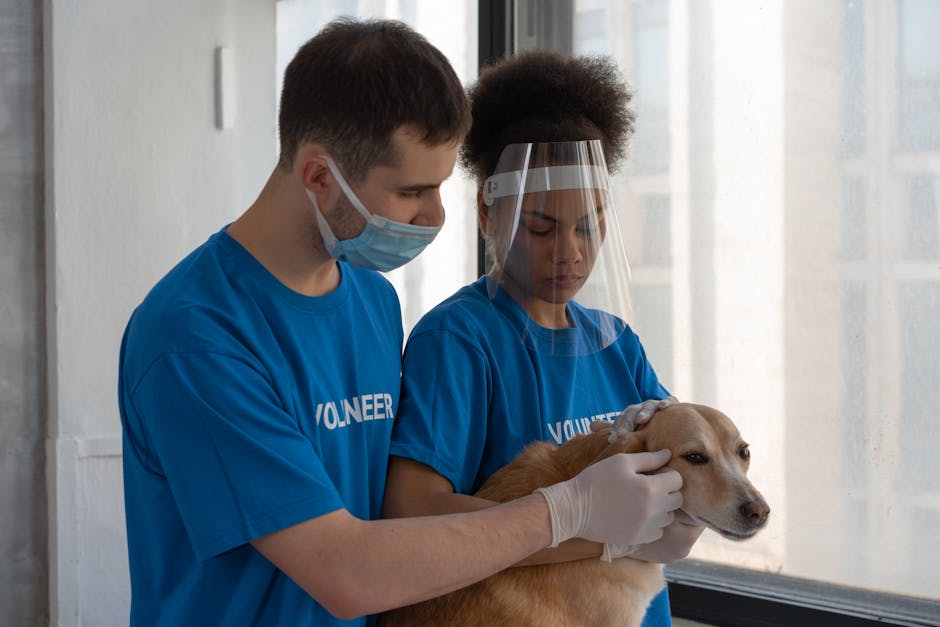The health and well-being of our cherished animal companions hinge significantly on proactive, preventative care. This crucial aspect of pet ownership, encompassing vaccinations, parasite control, nutrition, and regular check-ups, is not a singular responsibility. Instead, it’s a multifaceted endeavor, demanding collaboration between pet owners, veterinarians, and, increasingly, pet insurance providers. Understanding the nuanced division of labour in preventative veterinary care is vital for maintaining optimal animal health.
A Critical Element: Owner Engagement
Undeniably, the cornerstone of preventative pet care lies within the hands of the pet owner. This responsibility stems from recognizing pets as integral members of the family, akin to children in some respects. Their welfare is directly influenced by the decisions made and the lifestyle provided. Essential elements of this owner responsibility include a profound understanding of their pet’s species-specific needs, recognizing subtle behavioral cues, and maintaining a consistent, nutritionally sound diet.
Consider the importance of providing a safe environment. This includes preventing access to potentially harmful substances and ensuring a secure living space free from hazards. Understanding a pet’s natural tendencies and behaviours will lead to appropriate mitigation of risks.
Crucially, this owner commitment involves active participation in regular veterinary check-ups. These aren’t just for treating illness; they are proactive measures aimed at identifying potential health concerns early, when intervention is most likely to be successful. Scheduling these check-ups is not merely a courtesy; it is a vital component of preventative care. Regular bloodwork and fecal examinations provide invaluable insights into a pet’s overall health status.
A pivotal aspect of owner engagement revolves around identifying and addressing potential risk factors. Environmental hazards, including exposure to toxins, must be proactively mitigated. Recognizing the signs of dehydration, lethargy, or changes in appetite is also a key responsibility.
The Veterinarian’s Role: Beyond Treatment
Veterinarians play a crucial, and arguably more complex, role in preventative pet care. Their expertise extends beyond simply treating ailments; it encompasses providing comprehensive guidance and education for pet owners. This entails offering tailored advice regarding nutrition, exercise, and the identification of potential health issues through preventative screenings.
A large component of the veterinarian’s role involves disseminating essential knowledge about vaccinations and parasite control. This goes beyond simply administering the necessary shots. It incorporates an explanation of the rationale behind these measures, the potential implications of neglecting them, and the long-term health benefits they provide. Moreover, veterinarians often act as trusted advisors in making informed decisions about breed-specific health concerns and potential genetic predispositions.
Their expertise in identifying early warning signs of disease and performing thorough physical examinations cannot be overstated. A proficient veterinarian can detect subtle changes that an owner might miss, potentially saving a pet from serious health complications.
A Novel Partnership: Pet Insurance and Preventative Care
A comparatively new, but increasingly crucial, contributor to the preventative pet care equation is pet insurance. While typically associated with post-illness reimbursements, progressive insurance providers now recognize the value of preventative care. Many policies offer incentives and discounts for pet owners who engage in routine check-ups and preventative measures. This financial backing, while not always a substitute for owner responsibility, empowers owners with increased access to veterinary services.
Insurance companies are increasingly recognizing the connection between preventative care and long-term costs. By promoting preventative health measures, they are aligning their interests with the wellbeing of pets. This synergistic approach benefits pet owners financially while simultaneously encouraging a healthier pet population.
The Interwoven Nature of Responsibility
It is evident that the responsibility for preventative veterinary care is not unilaterally assigned. Instead, it’s a shared responsibility that thrives on the mutual understanding and cooperation of pet owners, veterinarians, and pet insurance companies. Pet owners shoulder the initial responsibility of establishing a healthy environment and lifestyle, alongside regular veterinary check-ups. Veterinarians furnish the expertise and knowledge necessary to provide guidance and conduct the crucial preventative screenings. Meanwhile, pet insurance providers offer financial support that can facilitate access to the preventative care.
Ultimately, a multi-faceted approach, involving conscious engagement from all stakeholders, is the key to ensuring the optimal health and well-being of our beloved pets. It’s not merely about providing a physical foundation; it’s about building a supportive ecosystem that prioritizes preventative care and fosters a long, happy, and healthy relationship between humans and their animal companions.
